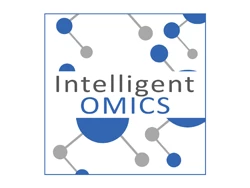INTELLIGENT OMICS UNLOCKS THE SECRETS OF PERSONALISED MEDICINE
We exploit our patented in house data analysis algorithms to identify patterns in healthcare datasets and apply our technology to clinical trial and medical bio data to find new disease markers and drivers of disease pathways that will lead to new Diagnostic Tools and Targeted Therapies.
Which of your mission-critical issues can Intelligent OMICS solve?
Intelligent OMICS can now answer many of today’s key questions in biotechnology.
• What are the most important genetic factors or drivers in the disease I am studying that research has not yet identified?
• Is my biomarker panel the optimum panel – in terms of brevity, sensitivity and specificity?
• What simple test can I use as a companion diagnostic for my new drug, with confidence that the test will work?
• How can I split my patient population so that I can focus my trial on the right patient group, improving the likelihood of success in my clinical trial?
• Do the results of my failed trial conceal a successful drug, but for a sub-population of patients?
• Can you identify a better target for drug discovery in the disease I am studying?
• Can you derive a test to identify who will respond to my drug, and who will not suffer significant toxicity issues?
• Existing diagnostics are inadequate for the disease I am researching as they are not fast enough, accurate enough or suitable for point of care diagnosis. Can you help?
• Can you find a new molecular target for the disease I am working on?
Contact us with your problem to see how we can help.
Based on artificial intelligence and machine learning technology, studies undertaken over the last 16 years have shown these non-linear discovery tools to be highly suited to the analysis of complex post genomic data. This has put the company at the forefront of “In silico“ Biological discovery identifying critical biological features such as biomarkers, molecular drivers of disease and therapeutic targets. The methodology developed enables verification of the “In silico” results resulting in a high degree of probability that resultant markers and drivers of disease pathways have a significant utility.

